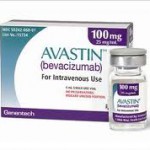If you like this blog, send it to 3 (or more) of your friends and encourage them to sign up. Let’s keep the conversation going!
A little history, from a breast cancer perspective
During my time at Breast Cancer Action, I became something of an expert on reading clinical trial data. I learned that the success of clinical trials is based on what the scientists call “the primary endpoint.” That’s the effect of the drug under study on what the scientists are trying to study.
And, during that time, the primary endpoint of many studies shifted from “overall  survival” (OS) – did the people in the study live longer?—to “progression free survival” (PFS) – did it take longer for the cancer to grow in people in the study receiving the study drug, as compared to the control group?
survival” (OS) – did the people in the study live longer?—to “progression free survival” (PFS) – did it take longer for the cancer to grow in people in the study receiving the study drug, as compared to the control group?
Why did this shift take place?
It seems logical that if it takes longer for cancer to grow, the people with the cancer will live longer. And both people with cancer and drug companies are impatient for results, though for different reasons. People with cancer want drugs today that don’t have so many side effects and that help them live longer. Drug companies want to get their drugs approved quickly so they can capture a share of the big markets, and cancer is a very big market.
With most types of cancer, you have study a lot of people for a long time to figure out if the treatment you’re giving helps them live longer. The thinking behind the shift in primary endpoints of studies, motivated by impatience, was this: We can determine whether a drug affects PFS more quickly than whether it extends OS.
And, if PFS indicates that a drug will work to extend the lives of cancer patients, then we can get to the market faster. Viewed this way, PFS is a “surrogate” – a stand in – for OS, and studying it is just as good as studying OS.
The Rub
Unfortunately, it turns out that delaying progression of cancer doesn’t predict very well whether a person with the cancer will survive longer.
In the case of Avastin, a drug made by Genentech and approved for several cancers, the  attempt to keep approval for its use in breast cancer has, at least so far, been foiled by the fact that in no study has Avastin been shown to improve overall survival of breast cancer patients, though it does delay progression. (The history of this drug in breast cancer can be found at www.bcaction.org. Just put “Avastin” into the search engine on the site.)
attempt to keep approval for its use in breast cancer has, at least so far, been foiled by the fact that in no study has Avastin been shown to improve overall survival of breast cancer patients, though it does delay progression. (The history of this drug in breast cancer can be found at www.bcaction.org. Just put “Avastin” into the search engine on the site.)
The FDA is still considering whether to withdraw Avastin from the breast cancer market. The stakes are very high for Genentech, but they are higher for people like you and me.
The Lesson
The reason the stakes of the Avastin issue are high for folks like us is that we need drugs that actually help us when we’re sick, not ones that may control some biological element related to our disease but not really make us better. And we sure don’t need any more drugs that make us feel awful (that is, degrade our quality of life) while not helping us at all. We are the ones who take these drugs, and need to them to work in a way that actually helps us. The use of surrogate endpoints puts too much emphasis on the “surrogate” and not enough on the people – us – the drugs are supposed to be helping.
Surrogate Endpoints: They’re Not Just for Cancer
There was a story you might have missed in the news in the last week – what with all the items about tornadoes and debt limits and other scary things — about using drugs to raise “good cholesterol” in the hopes that, like lowering bad cholesterol, doing so would extend the lives of people with heart disease.
In this case, the surrogate endpoint was a measurable increase in “good cholesterol,” on the theory that if that goes up, your heart is healthier.
 The drug used to raise good cholesterol is niacin. It’s apparently pretty hard to tolerate – patients report flushing and headaches. And the drug did indeed raise good cholesterol, but it didn’t do a thing to improve the heart health of the people taking it. The surrogate endpoint was a failure.
The drug used to raise good cholesterol is niacin. It’s apparently pretty hard to tolerate – patients report flushing and headaches. And the drug did indeed raise good cholesterol, but it didn’t do a thing to improve the heart health of the people taking it. The surrogate endpoint was a failure.
When it comes to ALS, the disease with which I’m now dealing, the causes and biological drivers are not understood so there are, as yet, no real surrogates to try to control with drugs. ALS drugs that get tested will have to improve peoples’ symptoms, actually delay their decline in function (this is meaningful delayed progression, which improves quality of life), or help them live longer. I think that’s a good thing.
Can We Focus More on People?
Maybe it’s time to take a step back from the rush to approve drugs as fast as possible, and make sure they work for people who are suffering, no matter what the condition being addressed. After all, we’re not surrogate endpoints; we’re human beings.
© Barbara A. Brenner 2011

Barbara – thanks for your insight here. I’ve been following the Avastin debate and these subtle plays with words to describe, and indeed “sell” outcomes in order to get approvals through are really quite disturbing when translated into actual patient settings.
There is a similar issue in developing drugs that are specifically designed for metastatic breast cancer that is resulting in a huge roadblock in getting these drugs into clinical trials. It all has to do with the official definition of ” progression” which relates to tumor size. As this letter to the ny times points out by Michael Fernandes, this definition does not “fit” the metastatic setting., as progression is not really about tumor size, but instead metastatic invasion to organs, which is what kills. . Without a change in definition, drugs specifically developed just to treat and prevent mets are destined to fail in the approvals process http://www.nytimes.com/2011/06/02/opinion/l02avastin.html?_r=2&ref=todayspaper
Thanks for sharing more information. Until the public take charge if their health and ask their doctors more questions, more drugs will be prescribed. Several years ago a doctor suggested I get on Tamoxafin. (I had not had breast cancer. She was using the drug as a prevention measure.) I was not pleased by her suggestion and asked a lot of questions. She didn’t like the challenge and told me at the end of the appoint that I should find another doctor. Thank goodness I didn’t take my doctors suggestion.
People need to put more value on their life. They need to change their eating habits and exercise. I made this decision 17 years ago and it has made a difference in my life. At age 66 I am not taking medication. I can climb and hike with my active grandsons and I look younger than my age. Yes, diet and exercise definitely makes a difference.
Wake up and take charge of your life. Don’t be so quick to fill a prescription but do research on the drug that you are putting in your body. All drugs have side effects.
Were you at our staff meeting yesterday morning and I didn’t notice you? You capture absolutely the content of our conversation. Thanks as always for your eloquence and fine input to our work even in absence–although I think clearly this post demonstrates that you linger in spirit here daily for us all. Much love AW
This makes me wonder whether the cost of medication that is unnecessary or detrimental is a factor of any significance in the cost of health care. Given the way we have to ration care, it is frustrating that any money is spent on drugs that are useless at best and bad for us at worst.
Barbara, you always make such interesting points. Obviously you have given all of these issues a lot of thought. Your comments make me realize just how complicated these issues are. While the drug companies have a profit motive in getting their drugs to market, and measuring PFS rather than OS makes that happen more quickly, presumably some patients would prefer to take advantage of drugs that have a chance at helping them, rather than waiting the additional time it would take until studies about overall survival can be completed. I remember back when they were looking for treatment/cures for HIV, patients were clamoring to have access to drugs even though clinical trials hadn’t been completed. Re the current approach, the studies about PFS, by following the patients, will ultimately result in studies about OS. So I guess the real point for patients is to be educated consumers, recognizing that a new med may or may not have an effect on OS, and determining whether they want to take it anyway, accepting the risk of side effects. And as one of the comments pointed out, it can’t be based just on doing whatever one’s doctor tells you to do. Have I ended up giving Breast Cancer Action a plug, since they provide the information that lets a consumer be educated?!
Right on Barbara; Human Beings we are that deserve humane approaches!